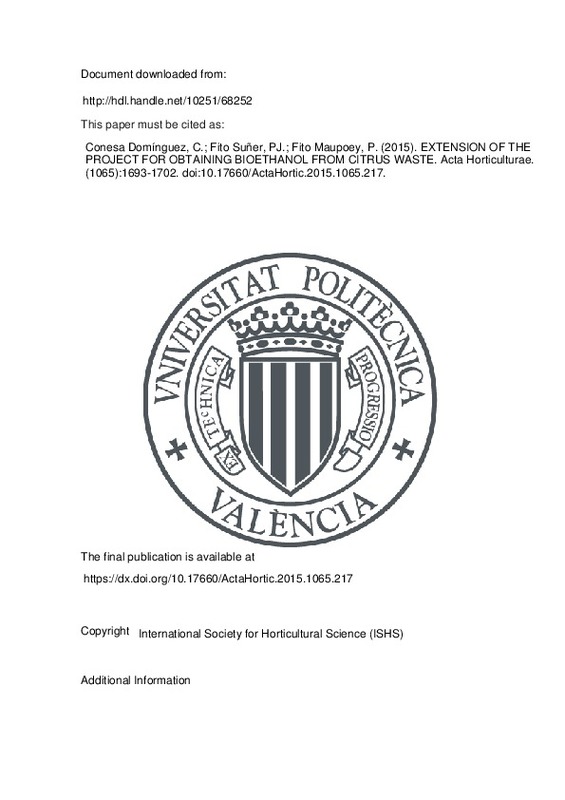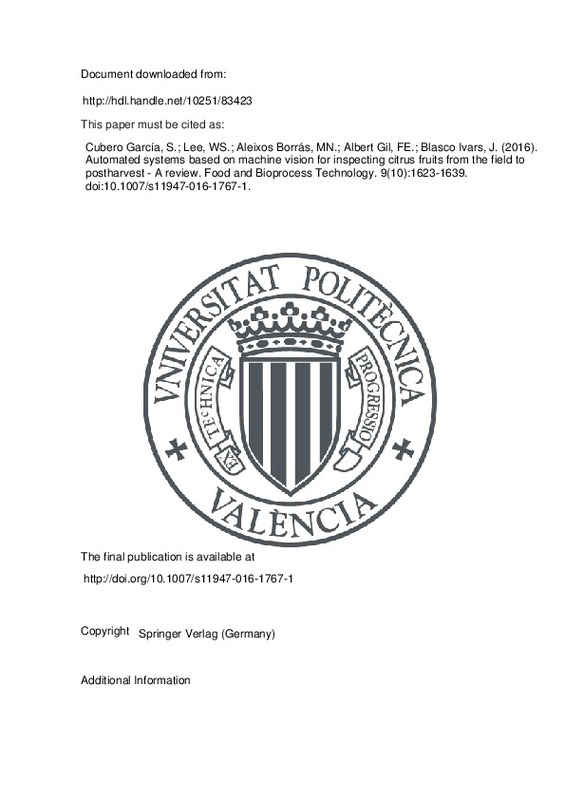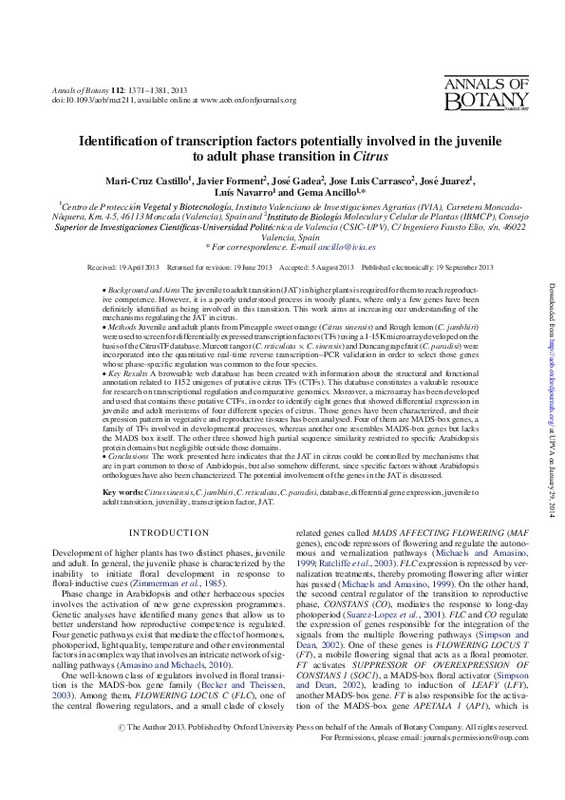JavaScript is disabled for your browser. Some features of this site may not work without it.
Buscar en RiuNet
Listar
Mi cuenta
Estadísticas
Ayuda RiuNet
Admin. UPV
EXTENSION OF THE PROJECT FOR OBTAINING BIOETHANOL FROM CITRUS WASTE
Mostrar el registro sencillo del ítem
Ficheros en el ítem
| dc.contributor.author | Conesa Domínguez, Claudia
|
es_ES |
| dc.contributor.author | Fito Suñer, Pedro José
|
es_ES |
| dc.contributor.author | Fito Maupoey, Pedro
|
es_ES |
| dc.date.accessioned | 2016-07-27T06:41:55Z | |
| dc.date.available | 2016-07-27T06:41:55Z | |
| dc.date.issued | 2015-01 | |
| dc.identifier.isbn | 978-94-62610-53-8 | |
| dc.identifier.issn | 0567-7572 | |
| dc.identifier.uri | http://hdl.handle.net/10251/68252 | |
| dc.description.abstract | [EN] The production of citrus fruit in Spain generates more than 0.5 million tons of waste. This is mainly due to rejects when packing fresh fruit and the waste generated by processing industries. An important challenge for the citrus sector is the use of this waste to unlock its economic value and eliminate the environmental problems that it generates. The Instituto Universitario de Ingeniería de Alimentos para el Desarrollo (Iu-IAD) at the Universitat Politècnica de Valencia (UPV) has developed a system for transforming citrus waste into bioethanol and into high value-added products such as essential oils. The purpose of this study was to find the most appropriate sites to implement a bioethanol industry from citrus waste. A spreadsheet has been created to calculate the bioethanol mass flow from oranges, tangerines, lemons, and limes and grapefruits flow waste. Total waste of the main citrus producers was estimated as the sum of the rejects when packing fresh fruits and the waste generated by processing industries. Total waste value (oranges, tangerines, lemons and, limes and grapefruits) was multiplied by the ratio between mass flow and citrus waste flow in order to calculate the bioethanol production in different countries. The results suggest that Brazil, USA, Mexico, China, India and Italy would be the most appropriate countries to implement a bioethanol industry from citrus waste. | es_ES |
| dc.language | Inglés | es_ES |
| dc.publisher | International Society for Horticultural Science (ISHS) | es_ES |
| dc.relation.ispartof | Acta Horticulturae | es_ES |
| dc.rights | Reserva de todos los derechos | es_ES |
| dc.subject | By-products | es_ES |
| dc.subject | Bioethanol | es_ES |
| dc.subject | Citrus waste | es_ES |
| dc.subject | Citrus, citrus waste, bioethanol, by-products, industrial citrus process | es_ES |
| dc.subject | Oranges | es_ES |
| dc.subject | Industrial citrus process | es_ES |
| dc.subject.classification | TECNOLOGIA DE ALIMENTOS | es_ES |
| dc.title | EXTENSION OF THE PROJECT FOR OBTAINING BIOETHANOL FROM CITRUS WASTE | es_ES |
| dc.type | Artículo | es_ES |
| dc.type | Comunicación en congreso | es_ES |
| dc.identifier.doi | 10.17660/ActaHortic.2015.1065.217 | |
| dc.rights.accessRights | Abierto | es_ES |
| dc.contributor.affiliation | Universitat Politècnica de València. Escuela Técnica Superior de Ingeniería Agronómica y del Medio Natural - Escola Tècnica Superior d'Enginyeria Agronòmica i del Medi Natural | es_ES |
| dc.description.bibliographicCitation | Conesa Domínguez, C.; Fito Suñer, PJ.; Fito Maupoey, P. (2015). EXTENSION OF THE PROJECT FOR OBTAINING BIOETHANOL FROM CITRUS WASTE. Acta Horticulturae. (1065):1693-1702. doi:10.17660/ActaHortic.2015.1065.217 | es_ES |
| dc.description.accrualMethod | S | es_ES |
| dc.relation.conferencename | XII International Citrus Congress - International Society of Citriculture | es_ES |
| dc.relation.conferencedate | November 18, 2012 | es_ES |
| dc.relation.conferenceplace | Valencia (Spain) | es_ES |
| dc.relation.publisherversion | https://dx.doi.org/10.17660/ActaHortic.2015.1065.217 | es_ES |
| dc.description.upvformatpinicio | 1693 | es_ES |
| dc.description.upvformatpfin | 1702 | es_ES |
| dc.type.version | info:eu-repo/semantics/publishedVersion | es_ES |
| dc.description.issue | 1065 | es_ES |
| dc.relation.senia | 283791 | es_ES |











